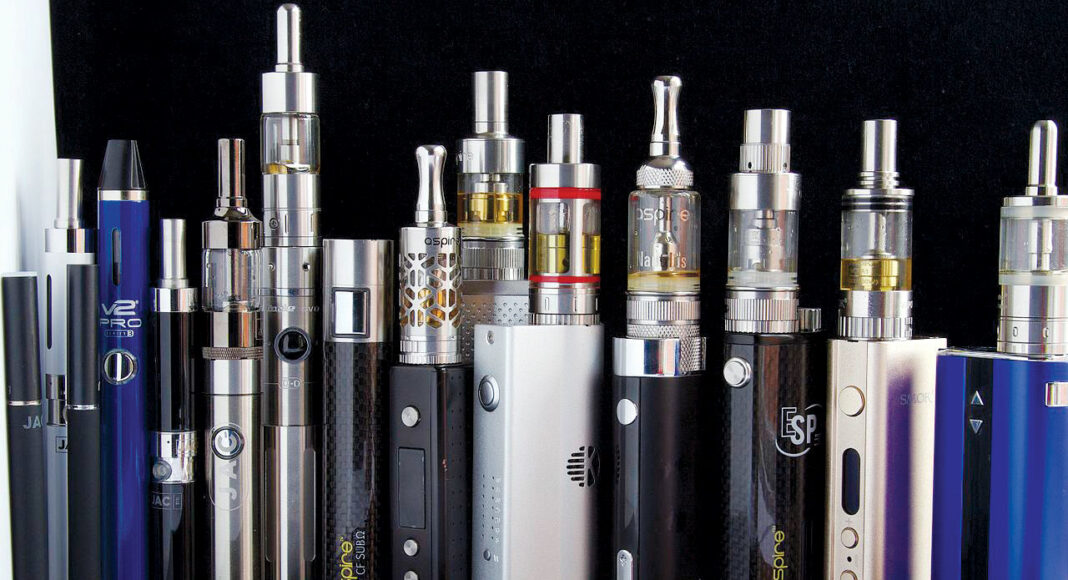It seems like a safe bet that, in the next year or two, Delta-8 THC products will be available—when they’re available at all—only from licensed, regulated cannabis dispensaries. Until that time, however, people who buy them are putting themselves at risk.
A new report by the U.S. Cannabis Council, a trade group of regulated dispensaries, declares that the sale of Delta-8 vapes amounts to a rapidly expanding crisis that “presents a public health risk of potentially wider impact than the vape crisis.”
Vape crisis refers to the outbreak of lung ailments that occurred in 2019 and 2020, sending thousands of people to hospitals and killing at least 60. The precise cause of the ailments has still not been definitively determined—though it likely was the vitamin E acetate used in the oil—but all the cases were tied to the use of black-market THC vaping products.
Sales of Delta-8 vapes could cause an even worse situation, according to the Cannabis Council, in part because the sales are open and widespread. The products are often made in bulk by companies, as opposed to being made a few dozen at a time by some schmuck in his garage—though those vapes are out there, too. The products are being sold online and in places like gas stations and clothing shops.
In other words, anyone can buy them, even kids, despite the fact that they get you high just as the far-more-common Delta-9 THC products do. This is all thanks to a perceived loophole in the 2018 Farm Bill, which legalized hemp. Delta-8 is most often derived from hemp, which is what federally legal CBD products are made from. And Delta-8 is usually converted from CBD. The Farm Bill puts a strict limit on how much THC hemp products can contain—a minute amount; not enough to get a person high—but it specifies Delta-9. Naturally, a huge gray market in Delta-8 products has emerged.
But another federal law, the Analogue Act, outlaws any substance that is chemically similar to a banned substance, or that mimics the effects of an outlawed drug. At the federal level, the question will likely be answered in the courts. In the meantime, states are starting to address the question, crafting laws and regulations aimed at banning or restricting Delta-8 sales. This is true of states with legal adult-use cannabis as well as states where pot is still illegal—the latter represents a huge part of the market for Delta-8, of course.
Besides the potential health hazards, the Cannabis Council warned that Delta-8 products are often mislabeled, and some might contain no THC at all. Some make ludicrous health claims. Some identify themselves as Delta-8 CBD, a particularly sleazy marketing tactic.
A few months ago, I ordered Delta-8 vape pens from a couple of different online vendors. It was as easy as buying stuff on Amazon. To be as safe as possible, I bought from companies that seemed relatively “legit”; the sites included identifying information, including the names of company officers, and the firms had track records in selling nicotine vapes and CBD products. I didn’t have to show proof of age. The pens showed up in the mail, and they essentially worked as promised.
There might well be a legit market for Delta-8 THC in legal states, though it seems as though that niche is already being filled by low-THC products that simply contain less Delta-9 than most cannabis products do.
The Cannabis Council’s preferred remedy is to legalize—and regulate—all THC products. That would require Delta-8 to be subject to legal standards and testing, just like all legal cannabis is. In its report, the Council is up front about the fact that gray-market Delta-8 vendors compete with its members, and that those have a cost advantage as well, since testing and adhering to standards is costly. But the Council is also right in noting that the fact that “Delta-8 is being sold outside of the regulated marketplace with no oversight or testing and is readily available to children is alarming.”



